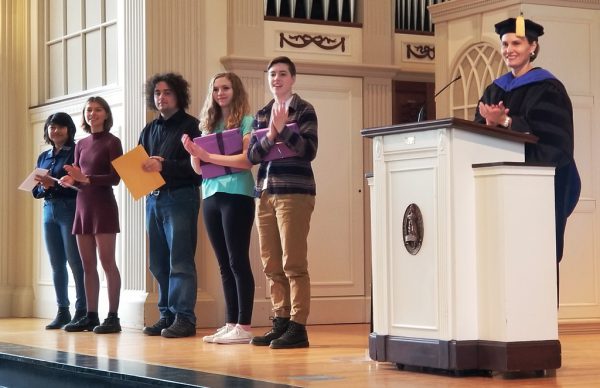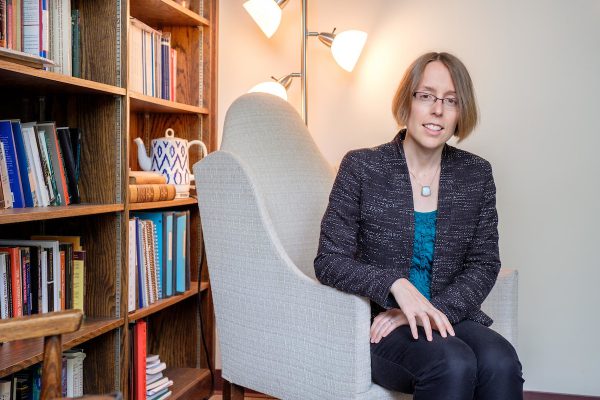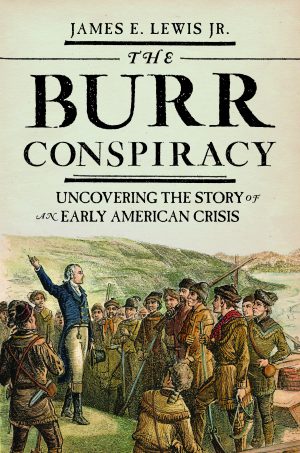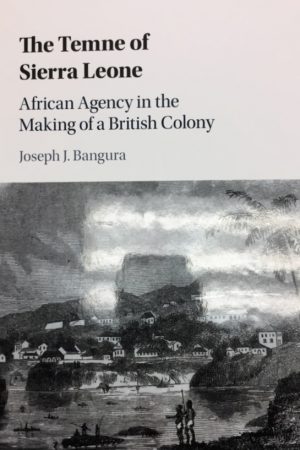Kalamazoo College Family Weekend served as the backdrop for the Honors Day 2018 convocation. More than 250 students were recognized Friday, Nov. 2, for excellence in academics and leadership in six divisions: Fine Arts, Foreign Languages, Humanities, Natural Sciences and Mathematics, Social Sciences and Physical Education. Recipients of prestigious scholarships were recognized, as were members of national honor societies and students who received special Kalamazoo College awards. Student athletes and teams who won Michigan Intercollegiate Athletic Association awards also were honored. The students receiving Honors Day awards or recognition are listed below.

FINE ARTS DIVISION
The Brian Gougeon Prize in Art
Isabel McLaughlin
Angela Pastor
The Margaret Upton Prize in Music
Dylan Beight
Cooper Award
Alysia Homminga
Megan Wilson
Sherwood Prize
Christina Diaz
Theatre Arts First-Year Student Award
Christina Diaz
Ynika Yuag
FOREIGN LANGUAGES DIVISION
LeGrand Copley Prize in French
Avani Ashtekar
Jessica Gougeon
Hardy Fuchs Award
Emily Eringaard
Margo Light Award
Grace Stier
Romance Languages Department Prize in Spanish
Sophia Goebel
Samantha Vasquez
Clara H. Buckley Prize for Excellence in Latin
Madeline Ward
Zhi Nee Wee
Provost’s Prize in Classics
Mara Hazen
HUMANITIES DIVISION
O.M. Allen Prize in English
Avani Ashtekar
Ynika Yuag
John B. Wickstrom Prize in History
CJ Martonchik
Department of Philosophy Prize
Johanna Jeung
Rosella LoChirco
Merrick Richardson
L.J. and Eva (“Gibbie”) Hemmes Memorial Prize in Philosophy
Max Fitzell
Daniel Qin
NATURAL SCIENCES AND MATHEMATICS DIVISION
Winifred Peake Jones Prize in Biology
Alexa Dulmage
Department of Chemistry Prize
Joseph Keller
Priya Pokorzynski
First-Year Chemistry Award
Lillian Baumann
Camden Gardner
Lemuel F. Smith Award
Sean Walsh
Computer Science Prize
Josephine Hosner
Ian Nostrant
First-Year Mathematics Award
Samuel Ratliff
Minh Dang
Thomas O. Walton Prize in Mathematics
Austin Cramer
Ethan Cuka
Michael Orwin
William Tait
Madeline Ward
Cooper Prize in Physics
Andrew Backer
Adam Decker
Emily Eringaard
Daniel Qin
Eleri Watkins
SOCIAL SCIENCES DIVISION
Departmental Prize in Anthropology and Sociology
Julia Bachmann
Nyima Coleman
Vivian Enriquez
Marcos Ferguson Morales
Yasamin Shaker
Wallace Lawrence Prize in Economics
Jade Jiang
Zachary Ray
William G. Howard Memorial Prize
Shayaan Dar
Wallace Lawrence Prize in Business
Georgie Andrews
Valentina Cordero
Irene and S. Kyle Morris Prize
Nick Klepser
William G. Howard Memorial Prize in Political Science
Alaq Zghayer
Department of Psychology First-Year Student Prize
Cavan Bonner
PHYSICAL EDUCATION DIVISION
Division of Physical Education Prize
Alex Dupree
Hannah Wolfe
Maggie Wardle Prize
Sophia Goebel
COLLEGE AWARDS
Gordon Beaumont Memorial Award
Anthony Diep
Malak Ghazal
Henry and Inez Brown Prize
Alex Cadigan
Sarah George
Nicholas Ludka
Amanda Moss
Virginia Hinkelman Memorial Award
Sara Lonsberry
Heyl Scholars – Class of 2022
Evelyn Bartley
Eva DeYoung
Thomas Fales
Madeline Guimond
Alina Offerman
Molly Ratliff
Syeda Tooba
Tatianna Tyler
Posse Scholars – Class of 2022
Sonia Arreguin
Nicholas Davis
Nathan Garcia
Zy’ere Hollis
Tytiana Jones
Aaron Martinez
Udochi Okorie
Joshua Pamintuan
Anthony Peraza
Samantha Rodriguez
Fiorina Talaba
National Merit Scholar – Class of 2022
Carter Wade
Voynovich Scholars
Haley Harris
Kathryn Martin
Alpha Lambda Delta – Class of 2019
Alpha Lambda Delta is a national honor society that recognizes excellence in academic achievement during the first college year. To be eligible for membership, students must earn a cumulative GPA of at least 3.5 and be in the top 20 percent of their class during the first year.
Nicole Bailey
Angel Banuelos
Catherine Carlberg
Justin Christopher-Moody
Nyima Coleman
Karli Crouch
Alexandro Cruz
Sela Damer-Daigle
Shayaan Dar
Adam Decker
Julia Dobry
Talea Fournier
Anna Gambetta
Camden Gardner
Sophia Goebel
Stanton Greenstone
Emily Hamel
Kelly Hansen
Kaylee Henderson
Amelia Hensler
Audrey Honig
Samantha Jacobsen
Madeline Jump
Liza Kahn
Joseph Keller
Hannah Kerns
Lu Liu
Rachel Madar
Natalie Markech
CJ Martonchik
Daniel Mota-Villegas
Kelly Nickelson
Nikoli Nickson
Abigail O’Keefe
Daniel Qin
Sage Ringsmuth
Maelle Rouquet
Kimberly Schmidt
Lily Shearer
Hannah Shiner
Caitlin Tremewan
Carter Vespi
Claire Ward
Maija Weaver
Ehren White
ENLIGHTENED LEADERSHIP AWARDS
Performing Arts: Music
Robert Barnard
Irie Browne
Rebecca Chan
Nolan Devine
Daniel Fahle
Grace Hancock
Julia Leet
Thomas Saxton
Lia Schroeder
Matthew Swarthout
Jonathan Townley
Ethan Tuck
Andrew Wright
MICHIGAN INTERCOLLEGIATE ATHLETIC ASSOCIATION (MIAA) AWARDS
The following Hornet teams earned the 2017-2018 MIAA Team GPA Award. Team members achieved a 3.3 or better grade point average for the entire academic year.
Men’s Baseball
Men’s Cross Country
Men’s Golf
Men’s Soccer
Men’s Swimming and Diving
Men’s Tennis
Women’s Basketball
Women’s Golf
Women’s Lacrosse
Women’s Soccer
Women’s Softball
Women’s Swimming and Diving
Women’s Tennis
Women’s Volleyball
MIAA ACADEMIC HONOR ROLL
The MIAA each year honors students at member colleges who achieve distinction in the classroom and in athletic competition. Students need to be a letter winner in a varsity sport and maintain at minimum a 3.5 grade-point average for the entire school year.
Alexandrea Ambs
Georgie Andrews
Ryan Andrusz
Hunter Angileri
Lauren Arquette
Julia Bachmann
Nicole Bailey
Zoe Barnes
Lillian Baumann
Jacob Bonifacio
Thomas Bryant
Jane Bunch
Alexander Cadigan
Charles Carson
Claire Cebelak
Joshua Claassens
Noah Coplan
Chase Coselman
Christina Dandar
Elan Dantus
Ricardo DelOlmo-Parrado
Guillermo Dominguez Garcia
Anders Finholt
Matthew Flotermersch
Benjamin Forhan
Maria Franco
Alex Fultz
Andre Gard
Sarah George
Jacob Gilhaus
Anthony Giovanni
Rachel Girard
Beau Godkin
Sophia Goebel
Connor Grant
Keenan Grant
Preston Grossling
Rebekah Halley
Griffin Hamel
Kaiya Herman-Hilker
Mathew Holmes-Hackerd
Matthew Howrey
Briana Huisken
Shannon Irvine
Samantha Jacobsen
Tim Jeske
Benjamin Johanski
Katherine Johnson
Lisa Johnston
Jackson Jones
Madeline Jump
Claire Kalina
Grace Karrip
Maria Katrantzi
Donald Kearns
Sai Klein
Emily Kozal
Matthew Krinock
Rosella LoChirco
Molly Logsdon
Nicholas Ludka
Rachel Madar
Cydney Martell
Eliza McCall
Courtney McGinnis
Clayton Meldrum
Tytus Metzler
Nathan Micallef
Madison Moote
Amanda Moss
Elizabeth Munoz
Kelly Nickelson
Nikoli Nickson
Jonathan Nord
Skyler Norgaard
Ian Nostrant
Abigail O’Keefe
Ryan Orr
Michael Orwin
Alexandria Oswalt
James Paprocki
Cayla Patterson
Caleb Patton
Zachary Prystash
Erika Pueblo
Daniel Qin
Erin Radermacher
Zachary Ray
Joshua Reuter
Julia Riddle
Scott Roberts
Anna Roodbergen
Justin Roop
Peter Rossi
Matthew Ryder
Claire Schertzing
Nicholas Schneider
Eleanor Schodowski
Justin Seablom
Sharif Shaker
Reagan Shapton
Danielle Simon
Jordan Skidmore
Adam Snider
Grant Stille
Shelby Suseland
Jack Tagget
Liam Tait
Kathryn Thamann
Alayna Tomlinson
Madison Vallan
David Vanderkloot
Zachary VanFaussien
Travis Veenhuis
Maija Weaver
Alex White
Jessica Wile
Jordan Wiley
Clayton Wilkey
Hannah Wolfe
Madeline Woods














